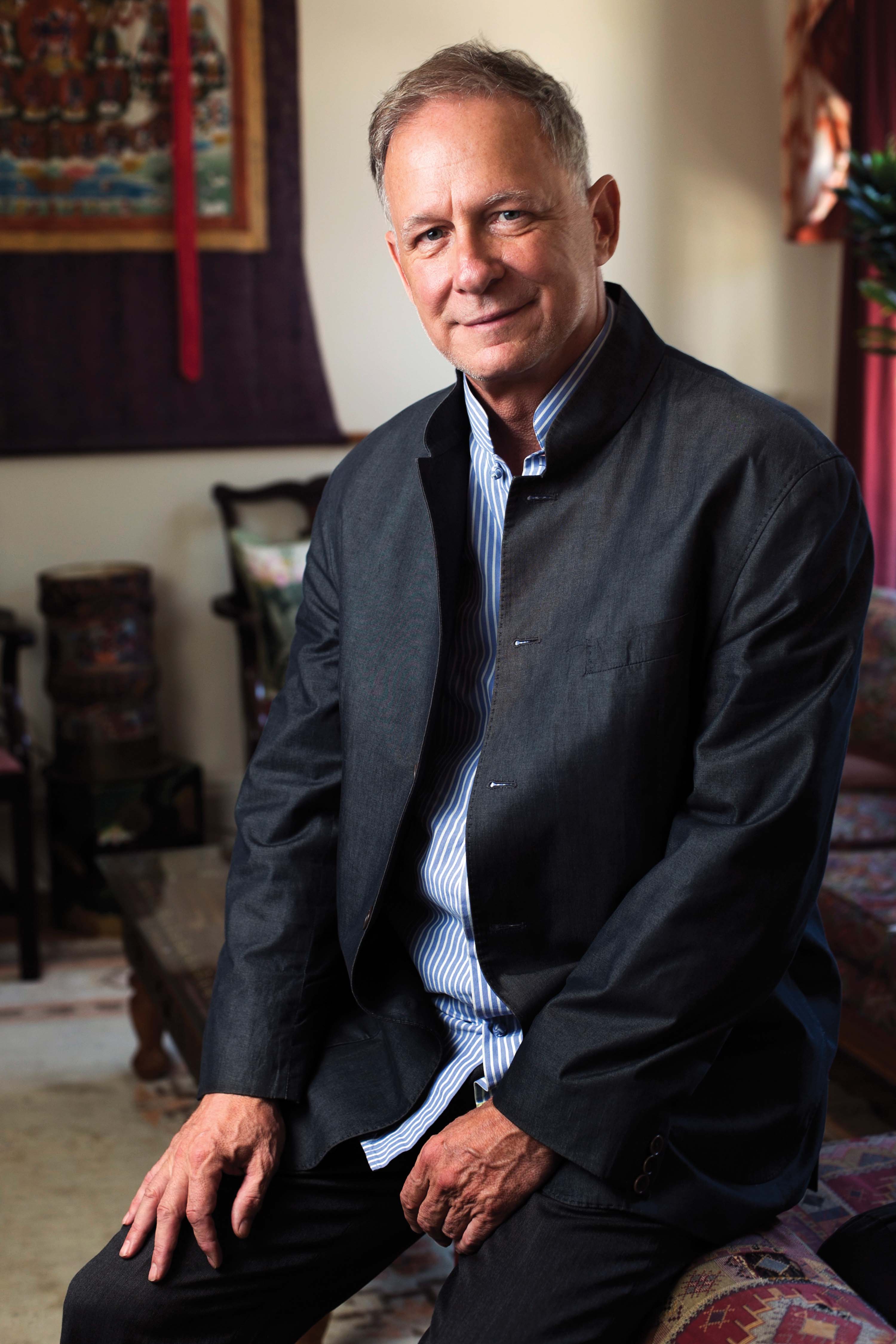The argument can be made that social investing got off the ground because of a Whartonite: D. Wayne Silby, W’70. For Silby, it will be the younger generations who carry the movement forward—Gen Xers and millennials—who want to save the world rather than just talk about it.
“Young people in particular want to feel more connected to the world,” says Silby. “At Harvard Business School, the Social Enterprise Club is the number-one club, not the Hedge Fund Club. At Wharton, the Social Impact Club is oversubscribed.”

D. Wayne Silby, W’70
Silby’s own start in social impact finance came after he received a juris doctorate degree from Georgetown University in 1976. He and John Guffey Jr., W’70, co-founded the Calvert Group, now Calvert Investments. In 1982, the firm introduced the first money market with a social screen and the Calvert Social Investment Fund—one of the earliest mutual funds dedicated to socially responsible investments. Today, Calvert Investments manages $12 billion, offering a broad array of SRI strategies to individuals and institutions.
Silby continues to manage the impact investments, the Special Equities, of the Calvert Social Investment Fund. He is co-chair of the Calvert Foundation, a nonprofit that currently has nearly $200 million invested in 250 community organizations in more than 100 countries. He chaired the China Committee of Grameen Foundation USA and has worked to secure investments for communities in China through the Calvert Social Investment Fund—as well as through Syntao, a Beijing-based company he founded to focus on corporate social responsibility. He also started an OPIC private equity fund focused on Central Europe, the Emerging Europe Fund for Sustainable Investment, and is co-founder of the Social Venture Network, a group of socially oriented entrepreneurs and investors.
“Impact investing is becoming so exciting now. We’re even seeing some very high-profile banker funds thinking about joining, which attracts top talent to the funds,” Silby says. “If top talent sees that the world has a more holistic way of working, instead of just trying to crush opponents, then more young people are going to get involved in social impact investing.”
Such investing by his generation has already had an impact by promoting such concepts as microfinance, which delivers financial products such as loans and insurance to poorer people in developing countries.
“Impact investing is about filling market gaps. Sometimes you know you will get a below market return, but if everyone put 2 percent of their money to make the world more ecologically balanced and promote social stability, then the whole portfolio could do better,” he says.
Like Silby, Wharton’s current and prospective students aim to do more than just invest responsibly. They don’t come to the School and discover social impact. They expect and demand it in the curriculum, on their campus and through professional opportunities. (We’ve highlighted a number of them in past issues and on the blog.) The Wharton Social Impact Initiative, a cornerstone of Dean Thomas S. Robertson’s Three Pillars, acts as a hub to channel this interest across campus. And students have Silby and many other alumni to follow as role models, particularly in the realm of social impact finance. Herein are but a handful of prominent examples.
When asked why he loves social impact investing, Jean-Philippe de Schrevel, WG’96, shoots back, “Why would you not love it?”
“You do an exciting job that does good for the planet and good for the people,” says de Schrevel, founder and CEO of Bamboo Finance in Luxembourg.
“It’s really tangible, it’s direct. You can feel the effects of it,” he says. “It just doesn’t work for itself; it works for the greater good. I find it totally fulfilling on both a professional and personal basis.”
It could be said that the urge to support growing economies is in his blood. De Schrevel’s parents, who were university professors involved in the development of emerging markets, first introduced him to the idea of helping emerging markets. He spent the first six years of his life in Kinshasa, in what is now the Democratic Republic of the Congo. He later studied development economics at the Université Notre-dame de la Paix in Namur, Belgium and spent several months on the ground in the slums of Kolkata and Mumbai in India during his third year of university.
“Between that experience, extensive travels and studying development economics, I knew I would do something to make this planet a bit fairer,” he says.
He spent his early career working in microfinance as a junior team economist in Romania for EU PHARE, a program developed by the European Union to assist central and eastern European counties in joining the EU. His career evolved. He served as a field consultant in microfinance for a Belgian NGO, an associate with McKinsey & Co, the operations director of a private microfinance foundation in Argentina and a consultant for the UNCTA D Microfinance Unit in Geneva. He co-founded BlueOrchard Finance, an impact investment asset management firm, in 2001. Six years later, he founded Bamboo Finance Private Equity Group, a commercial investment firm that monitors the societal impact of the investments in its portfolio.
“Everything I’ve done for the past 15 years at Blue Orchard and now Bamboo Finance is driven by the desire to have impact on low-income people,” de Schrevel says. “From the very beginning, I have set out to demonstrate that you can invest profitably while having impact on poverty. You do not need to have trade-offs between financial returns and social impact.”
When de Schrevel entered the sector, microfinance commercial investing was just beginning. Now it’s worldwide,ocial and environmental impact is the goal and private capital for profit investing is the mode, de Schrevel says. His success “will have shown the way to massive pools of capital in search of returns” for enterprises aiming to improve the lives of millions around the world he says.
Bamboo Finance launched six years ago with $250 million in private equity funds, and it is now more than doubling assets with its second series of funds, confirming itself as a global leaders in this sector. It launched its fixed income business with just $10 million of seed money, and the total amount of assets managed now approaches $700 million.
“That’s an idea of the possibility of exponential growth in the microfinance sector,” de Schrevel says. “Currently there are 2 billion people with no access to financial services, so we still have a lot of work in the market, but it’s maturing fast.
“The same is true of other businesses delivering other essential services to low income segment in emerging markets such as access to health care, clean energy, affordable housing and even education. We are just at the beginning of a major irreversible wave of growth with amazing business and investment opportunities … improving lives of hundreds of millions of people.”
Nick O’Donohoe, WG’81, counts himself as “extraordinarily lucky” that JPMorgan Chase & Co.’s CEO Jamie Dimon handpicked him to oversee a small social finance group, thus shifting his career in a new direction.

Nick O’Donohoe, WG’81
After spending nearly 30 years as an investment banker for Goldman Sachs and then JPMorgan, O’Donohoe was JPMorgan’s global head of research when Dimon chose him to supervise the new group.
He was both fascinated and challenged by the same concept that de Schrevel discussed: whether social impact and financial returns are reconcilable.
“Or is the world really binary, and you either have to be for-profit or not-for-profit?” he says.
O’Donohoe’s first step was to lead a research report, Impact Investing in Emerging Asset Classes, jointly produced by JPMorgan and the Rockefeller Foundation, which highlighted various business models that have social impact and were generating some return. The report’s conclusion: “There really was potential to develop this on a wider scale.”
This finding led O’Donohoe to meet with some influential U.K. social impact investors, including Sir Ronald Cohen, who is considered “the godfather of social impact investing” in that country. They asked O’Donohoe to help the U.K. overnment with its plans to direct a large amount of capital to establish a social investment bank. In 2011, O’Donohoe was named CEO of Big Society Capital in London.
“I had been in banking for 28 years, and this was the first time any government really tried to set up this type of institutionwith a mandate to help develop social enterprises, social entrepreneurism and social investments,” O’Donohoe says. “If executed right, this could have enormous benefit on society. It was the first of its type in the world, and there is no roadmap whatsoever. You don’t get those opportunities much—only once in your life if you are lucky.”
Already at the center of the social investment movement in the U.K., Big Society Capital possesses enough capital to develop a strong, diverse and sustainable social investment market there.
How much? The firm launched in April 2012, according to its website, with an estimated £600 million of capital, £400 million of which will be from unclaimed assets left dormant in bank accounts for over 15 years, and £200 million from the U.K.’s largest high street banks.

Durreen Shahnaz, W’95
Like many of today’s Wharton students, getting into social impact finance “was not an epiphany” for Durreen Shahnaz, WG’95—it was something very much a part of her life’s journey.
The 1995 Wharton graduate was born and raised in Bangladesh, a country “where women do not receive much opportunity to pursue a career in finance, let alone anything else,” Shahnaz says. She counts herself as among “the fortunate few” who attended a U.S. college. After receiving a bachelor’s degree in government and economics from Smith College, Shahnaz served a stint on Wall Street as a financial analyst at Morgan Stanley. She was told she was the first Bangladeshi woman to work in Wall Street.
It was “quite an eye-opener,” she says. While she was able to experience the “powerful role” that finance and the capital markets played in growing the world economy, that growth was “very myopic—it was just about maximizing capital at any cost.”
“For me, it became a lifelong quest to use the knowledge of finance to do good for the world and bring about sustainable development to the disadvantaged people across the globe,” Shahnaz says.
In 1991, she returned to Bangladesh and worked at Grameen Bank. The organization received a Nobel Peace Prize in 2006 for providing microloans to the rural poor. Her experience with it proved transformative for Shahnaz, who returned to the U.S. in 1992 to work on a joint master’s degree: an MBA from the Wharton School and a master’s from the School for Advanced International Studies at Johns Hopkins University.
She then served in the publishing and finance industries as well as in academia—moving from the World Bank and the International Finance Corp. in Washington, D.C., to Merrill Lynch in Hong Kong, and to head of the Asia operations of Hearst Magazine International, Reader’s Digest Asia and Asia City Publishing.
But Shahnaz’s special knack is for social entrepreneurship. She has formed unique companies such as OneNest, an online global wholesale marketplace for handmade goods from around the world; Impact Investment Exchange (IIX), the world’s first stock exchange for social enterprises; and Impact Investment Shujog (Shujog), a not-for-profit focused on deepening the impact of social enterprises in their community and the knowledge base around creating social capital markets.
She first explored the notion of creating a stock exchange for Asian and African social enterprises while teaching social innovation and social finance at the Lee Kuan Yew School of Public Policy at the National University of Singapore. She believed such an exchange would democratize the entire capital markets system, eliminating many of the barriers to market entry that currently exist while achieving social and environmental goals. More investors could use such a stock exchange to create social and environmental good. Social enterprises need such funding. Those with access to funding are seeing their growth capital needs outpace the capacity of investors in the private markets, Shahnaz says.
Started with support from Rockefeller Foundation, IIX operates three capital-raising platforms: Impact Incubator, Impact Partners and Impact Exchange. The platforms showcase social enterprises seeking growth capital from a global audience of impact investors, giving the social enterprises greater opportunities to scale and expand their positive impact. Through Impact Incubator (launched 2012) and Impact Partners (launched 2011), IIX has facilitated almost $10 million of impact investments in Asian IEs from its network of several hundred accredited impact investors as well as eight deals for social enterprises. IIX has screened more than 300 Asian social enterprises to be included on these platforms, of which it has listed a total of 30.
In June 2013, IIX launched the world’s first social stock exchange: Impact Exchange. Impact Exchange will unlock large amounts of capital for impact investing in Asia and Africa by allowing retail and institutional investors to make impact investments. Impact Exchange is operated by the Stock Exchange of Mauritius (SEM), in cooperation with IIX, and regulated by the Financial Service Commission Mauritius. The first IIX issuance should occur within the next few months of this publication, Shahnaz says.
“Impact Exchange provides all the advantages of other public trading platforms—liquidity, transparency and efficiency—while also ensuring that the social and environmental mission and impact of the issuers is safeguarded and showcased,” she says.
For Erika Karp, W’85, technology is fueling the rise of social conscience and “sustainable capitalism” among today’s students, as well as working-age adults everywhere. They in turn are able to act on the impulse because of the largest intergenerational transfer of wealth in history.
The advent of social media has raised the consciousness of societal needs among users, and with that, a much higher expectation of transparency on how private sector companies might be impacting those needs both positively and negatively, explains Karp, who has long advocated sustainable investing within the financial community and the broader world through speaking and writing engagements (including hosting corporate and investor working sessions and social media efforts).
Karp also points to the accessibility of big data, the analytical capabilities to leverage massive amounts of diverse information about the environmental, social and governance factors to gain better predictive insight into how investments might perform.
And then as more baby boomers retire, their wealth will pass to Gen Xers and millennials, who as we are again reminded, are widely recognized as being more socially aware than any generation before.
As such, the next generation of “billionaire investors” are demanding not only competitive economic returns, but also a positive social impact, Karp says.
“There can be excellent profitability without exploitation. In fact, there can be a double or triple bottom line,” she says. “And that, in my view, is what defines the next wave of capitalism.”
Karp is putting her money where her mouth is. She left UBS and her prestigious role as managing director and head of global research to become CEO of Cornerstone Capital Inc., a startup financial consulting and investment banking firm based in New York City with a focus on global “sustainable finance.”
After Wharton, Karp earned an MBA from Columbia University. She spent several years as an account sales representative at IBM Corp. before moving on to Credit Suisse First Boston. In 1999, Karp joined UBS, creating its family of global equity research products, including the trademarked UBS “Q-Series” initiative and the UBS “Global I/O.” She also developed and managed the “UBS Global Portfolio Manager’s Spotlight,” a weekly synthesis of top UBS investment themes and ideas.
Now at Cornerstone, she says her mission is to “bring the principles of sustainable finance into the mainstream of the
capital markets.”
“By starting from scratch with a single-minded focus on sustainable finance and capitalism, I am able to move much more quickly to pursue the mission,” she explains.
“We’re at an inflection point where we can have a better and more sustainable form of capitalism if we act consciously, pragmatically and systematically,” she continues. “As a social impact investor, you can indeed demand both competitive returns and positive societal impact.”
And as a Wharton graduate, as these alumni show, you can succeed in big finance and do good at the same time.

























